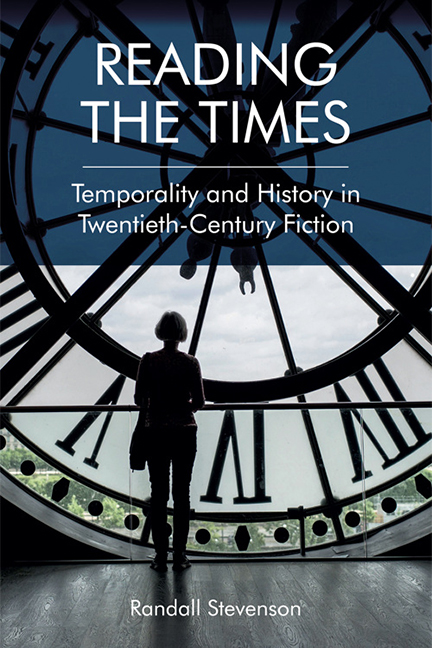Book contents
- Frontmatter
- Contents
- List of Illustrations
- Preface
- 1 Introduction: Picnic Time, Prime Time, Story Time
- 2 ‘All Those Figures’: Joseph Conrad and the Maritimes
- 3 ‘Wheels within Wheels’: D. H. Lawrence, Industrial Time and War Time
- 4 Times in the Mind: Modernism in the 1920s
- 5 Not Like Old Times: The 1930s to Mid-Century
- 6 ‘Time is Over’: Postmodern Times
- 7 Conclusion: Millennial Times, Perennial Times
- Bibliography
- Index
4 - Times in the Mind: Modernism in the 1920s
Published online by Cambridge University Press: 10 November 2020
- Frontmatter
- Contents
- List of Illustrations
- Preface
- 1 Introduction: Picnic Time, Prime Time, Story Time
- 2 ‘All Those Figures’: Joseph Conrad and the Maritimes
- 3 ‘Wheels within Wheels’: D. H. Lawrence, Industrial Time and War Time
- 4 Times in the Mind: Modernism in the 1920s
- 5 Not Like Old Times: The 1930s to Mid-Century
- 6 ‘Time is Over’: Postmodern Times
- 7 Conclusion: Millennial Times, Perennial Times
- Bibliography
- Index
Summary
Paul Ricoeur introduces his term ‘monumental time’ specifically, and appropriately, in discussing Mrs Dalloway (1925). Virginia Woolf's novel addresses many of the issues summed up at the end of the previous chapter, extending in doing so several features of her writing which emerged distinctively during the period following the Great War. One of these is the growing prominence her fiction accords to clocks and their unsettling influences. Night and Day (1919) describes ‘mellow strokes … of the hour … a message from the great clock at Westminster’ falling fairly benignly across London, offering a reminder only of ‘the just and inexorable nature of time … the unhasting and unresting march of that divinity’. In Jacob's Room (1922), ‘the worn voices of clocks’ are heard rather more regularly and insistently, dividing ‘time into quarters’ or asserting ‘the fact of the hour’. The ‘large white clock of Westminster’ also makes a significant reappearance, its chimes described as resonating throughout the institutions of government, adding to the ‘inexorable gravity’ of authorities who ‘decreed … the course of history’.
Clocks – the ‘clock of Westminster’ particularly – proclaim their iron measures still more intrusively in Mrs Dalloway, and at every stage of the day the novel describes. An opening salvo from Big Ben resounds as early as its second page: ‘out it boomed. First a warning, musical; then the hour, irrevocable. The leaden circles dissolved in the air’. This ‘great booming voice’ returns repeatedly thereafter, its ‘extraordinary vigour’ even figured on one occasion ‘as if a young man, strong, indifferent, inconsiderate, were swinging dumb-bells this way and that’ (55, 54). Big Ben's vigorous influence is regularly supplemented through being ‘blent with that of other clocks’ – ones which, echoing its magisterial divisions of the day, likewise ‘counselled submission, upheld authority’ (104, 113). Those in Harley Street have a particularly invidious role. The passage quoted in Chapter 1 goes on to explain how their ‘shredding and slicing, dividing and subdividing’ of the June day is reinforced by
a commercial clock, suspended above a shop in Oxford Street, [which] announced, genially and fraternally, as if it were a pleasure to Messrs Rigby and Lowndes to give the information gratis, that it was half-past one.
- Type
- Chapter
- Information
- Reading the TimesTemporality and History in Twentieth-Century Fiction, pp. 73 - 123Publisher: Edinburgh University PressPrint publication year: 2017



